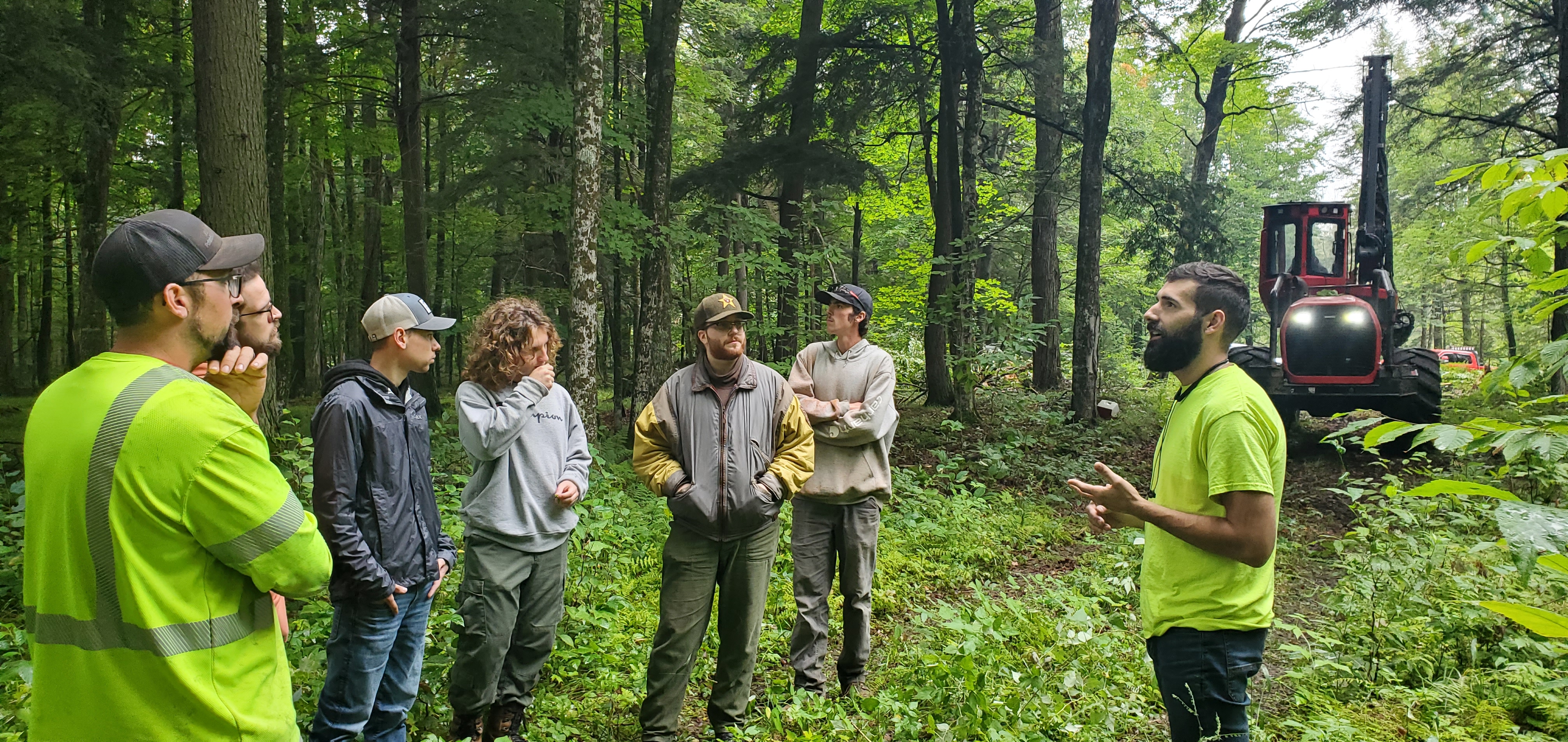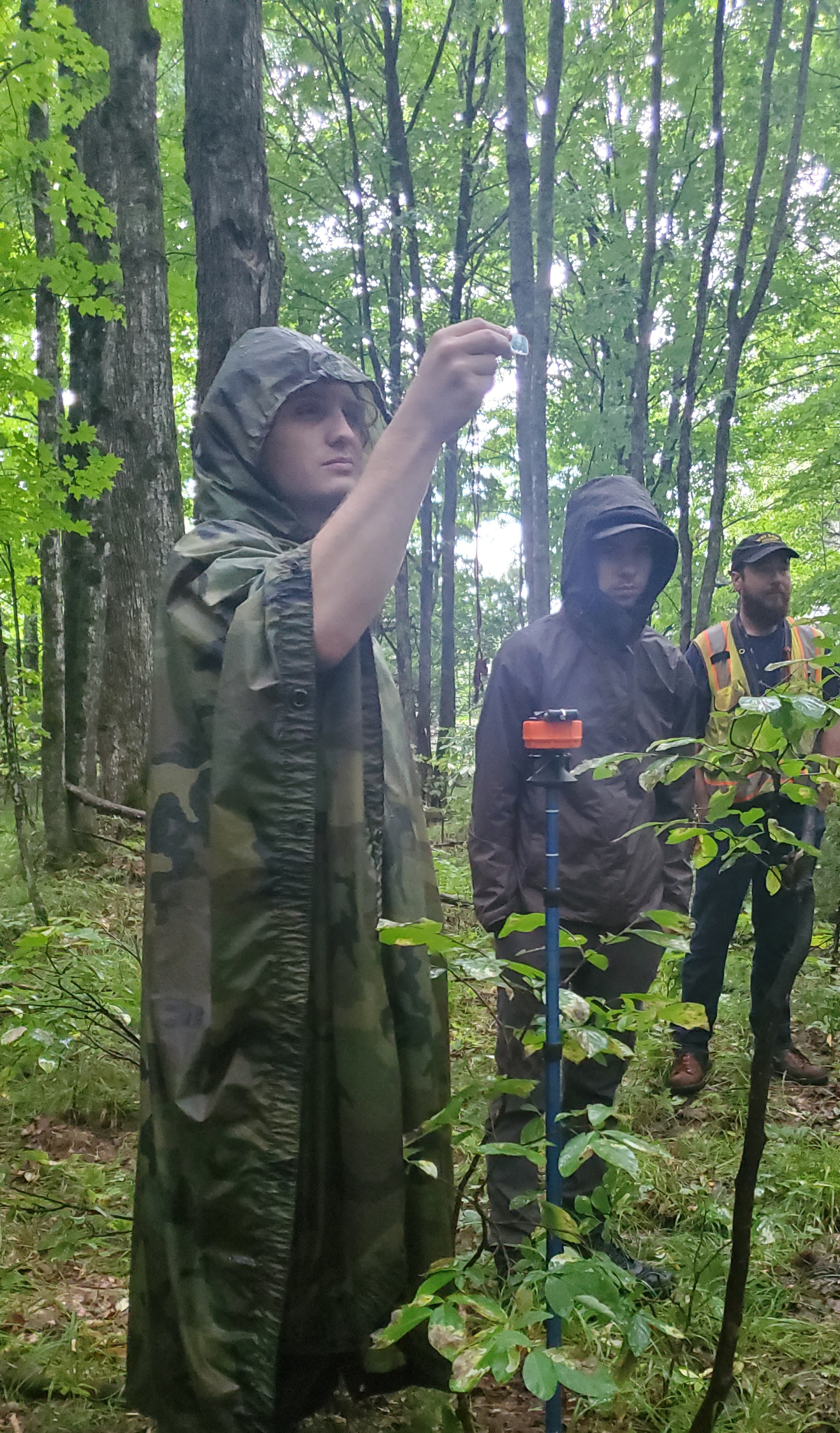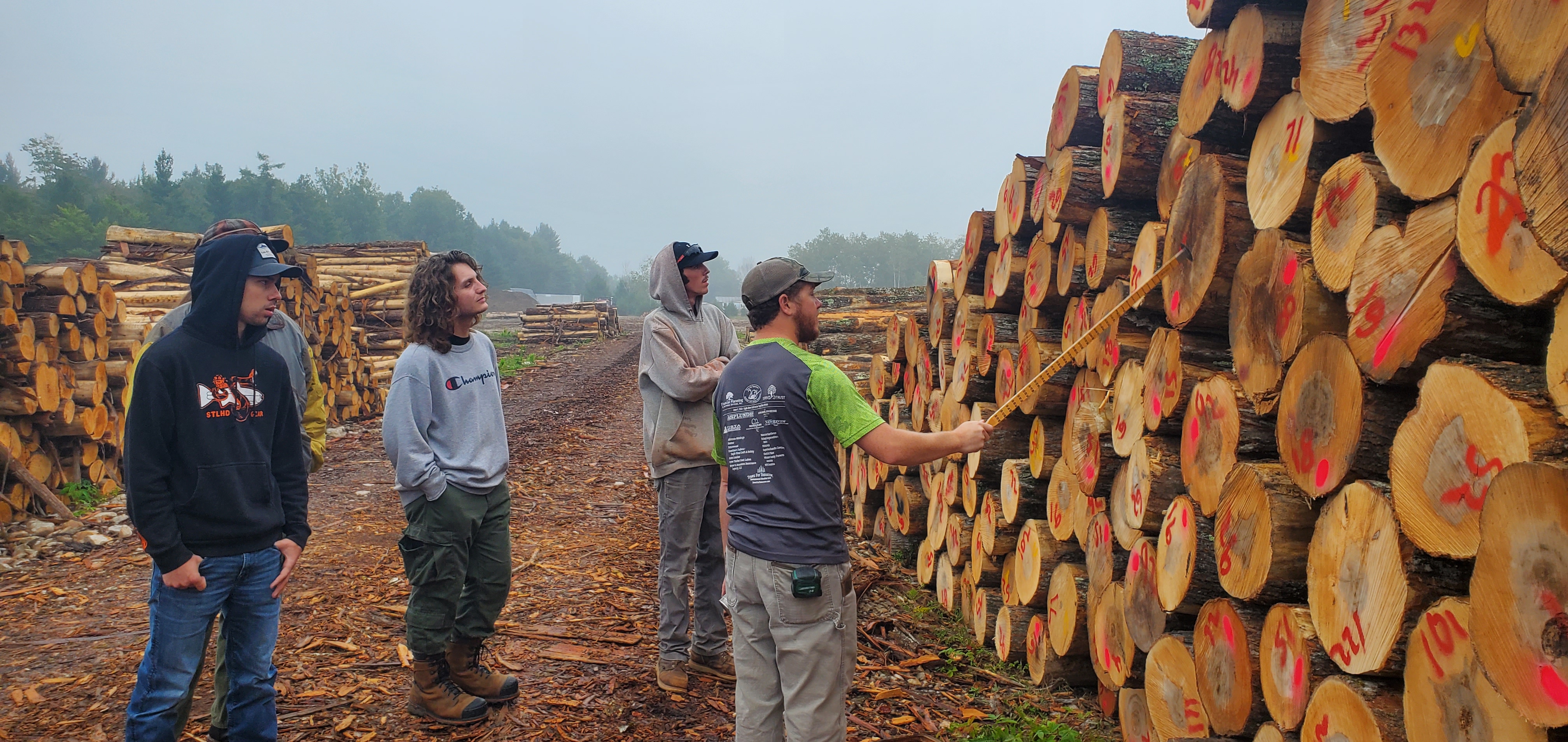MSU Institute of Agricultural Technology, Bay College provide on-ramp to careers in forestry
Forest Technology Certificate Program provides two-year degree, career-ready skills

EAST LANSING, Mich. – Liam MacFadyen did not have college in his plans when he graduated from North Dickson County School in Michigan’s Upper Peninsula. MacFadyen, 22, joined the workforce and spent about five years as a carpenter after high school, but a conversation with a local forestry professional inspired him to explore options in higher education that would set him on the path to a new career.

The IAT Forest Technology certificate program, coordinated and offered by the MSU Institute of Agricultural Technology (IAT) and Bay College, provided a perfect opportunity for MacFadyen to pursue his goals of becoming a certified forestry professional, seek a career working outdoors, and provide the fundamentals and first steps toward his dream of someday owning his own company.
The partnership is funded by a $749,000 Higher Education Challenge (HEC) grant from the USDA’s National Institute of Food and Agriculture (NIFA).
“I would love to play a part in preserving and maintaining our forests,” said MacFadyen, who is originally from Chicago and moved to Michigan a decade ago. “A career in forestry was intriguing. These are pivotal jobs that will always be needed. This program allows me to acquire the skills to get a quality local job while applying what I am learning in class to build my skillset and gain experience.”
MacFadyen is a member of the first cohort of students participating in the IAT Forest Technology Program. The novel academic partnership is designed to engage students in intensive and practical skill development that will serve to address the changing needs of forestry practice and to train the upcoming generation of forestry professionals. The program focuses on skills needed to be immediately employable in a wide range of forestry-related careers.
“I am someone who never thought I would continue my academic career after high school,” said MacFadyen, whose experience through the program’s early classes has inspired him in his first steps of his college career. “What stands out most is that everyone involved has a true love and interest about the same things I do. There is a passion that I love to see.”
Students benefit from dual enrollment at both institutions with all courses delivered at Bay College in Escanaba and the MSU U.P. Forestry Innovation Center. This partnership allows students to earn an associate degree from Bay College and a Certificate in Forest Technology from the Michigan State University IAT.
Upon completion of the two-year program, graduates can immediately enter the workforce or seamlessly enroll in the MSU Department of Forestry bachelor’s degree program. Interested prospective students can request more information about the program and apply online.

“In collaboration with local partners, such as MDARD and DNR, we've discovered a growing demand for skilled workers in Michigan's forestry sector. Through the introduction of programs like Forest Tech and Urban Community Forestry, IAT delivers a distinctive educational experience, equipping students with sought-after skills and competencies crucial for making a positive contribution to the forestry industry,” said IAT Director Jennifer “Jeno” Rivera, Ph.D. “Our alliances with community colleges in both the upper and lower peninsula provide students with hands-on, locally relevant learning experiences tailored to their communities.”
The course curriculum is a blend of online and in-person classroom work combined with extensive applied lab and field experiences. Courses include lessons in tree identification, conducting forest inventories, wildland firefighting, Global Positioning Systems (GPS)/Geographic Information Systems (GIS), applications of drone technology, field trips to area forestry institutions and businesses and a paid professional internship with a local forestry employer.
MSU professors, MSU Extension experts, forestry industry professionals and local foresters have partnered to develop the curriculum. The MSU U.P. Forestry Innovation Center in Escanaba is providing non-timber forest product education for students, including instruction on maple syrup, Christmas trees, ginseng, as well as examples of UAV technology in forestry applications.
Justin Kunkle, director of undergraduate studies for MSU’s Department of Forestry and Higher Education Challenge grants project director, is leading the partnership and has facilitated curriculum development.
“The nice thing about this program is it offers what I would call multiple entry points and exit points from the program. Students would be able to exit the program after two years with a certificate and associate degree and be ready for immediate employment, or they could decide they want to complete a bachelor's program in forestry where there will be a path to MSU or other universities,” Kunkle said.
The first cohort of students began the program in August with a one-week introductory crash course into the world of forestry.

Sisson served as a lead recruiter for the first cohort, seeking out prospective students statewide. Sisson said he is excited about the unique perspectives and outlooks each student in the first cohort brings to the class. Sisson served as instructor for the students’ introductory course, Forestry 115. The one-week immersion “immediately threw the students into all Michigan forestry has to offer, featuring courses throughout Michigan’s Upper Peninsula,” Sisson said.
“The first cohort of students in the program exemplify the various avenues of entry to our programs, with both students coming right out of high school and non-traditional students, as well as students from all over the state – a couple from the Detroit area, a couple from the Western UP,” Sisson said. "The intro course was designed to immerse the students and show them many different forest types. We tried to be able to show the different aspects of the forest industry and the careers and skills needed by putting them in touch with forestry experts. It's basically an immersion into the forestry industry to get everyone up-to-speed.”
IAT, Muskegon College partner on Urban Forest Management program
MSU IAT is additionally collaborating with Muskegon Community College to offer a two-year Urban Forest Management certificate program with classes held at the Muskegon Community College campus. The program is currently accepting applicants and recruiting potential students for its first cohort.
Students in the program will connect with local employers for paid summer internships and network with urban forestry leaders at professional meetings. “This program is an innovative access ramp to urban forestry training in a market where there’s a growing demand for skilled labor,” said Asia Dowtin, Assistant Professor of Urban Forestry at MSU. “There truly is a growing interest and demand for accessible workforce development training programs.”
Following graduation, students earn a certificate preparing them for immediate employment in a wide range of careers with municipalities, private companies and utility companies, as well as federal, state and county agencies. If interested, students can also transfer into Michigan State University to earn a bachelor degree in forestry or another related degree. Interested prospective students can request more information about the program and apply online.



 Print
Print Email
Email